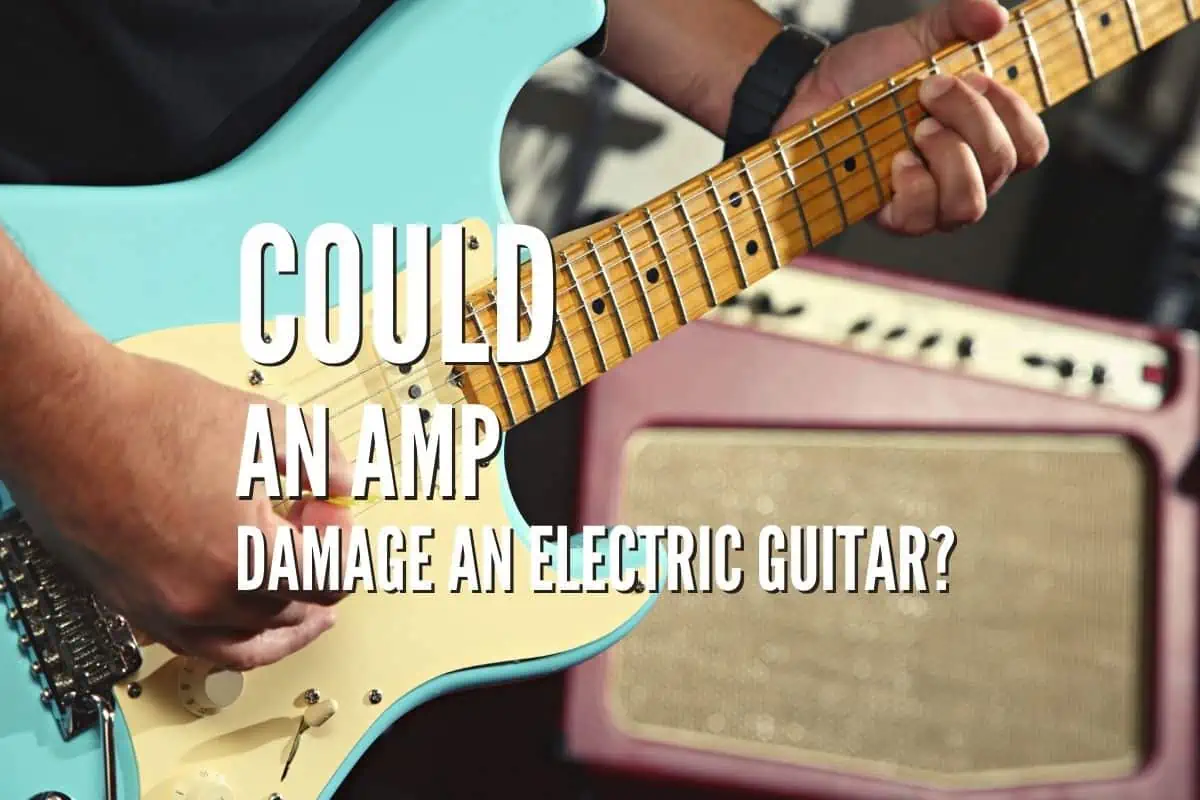Amplifiers are important companions for electric guitar players, offering versatility and power. But, many guitarists don’t know that this essential companion can also pose risks to your instrument. From serious problems of electrocution to subtle issues with overheating and impedance mismatches, there are many things to consider.
First of all, there must be something seriously wrong with your amp for it to damage your guitar. If the amp experiences a short circuit, causing an electric flow toward the instrument’s input, it can seriously damage you as well as your guitar.
Additionally, an amp can get damaged and damage an electric guitar if it gets exposed to risks such as overheating, speaker damage, and mismatched impedance. But, these issues won’t have serious effects on your instrument.
In this article, I’ll be diving deep into the potential hazards an amplifier can pose to your electric guitar. I’ll also be discussing signs of damage and protective measures you can take.
Potential Risks of an Amplifier to an Electric Guitar
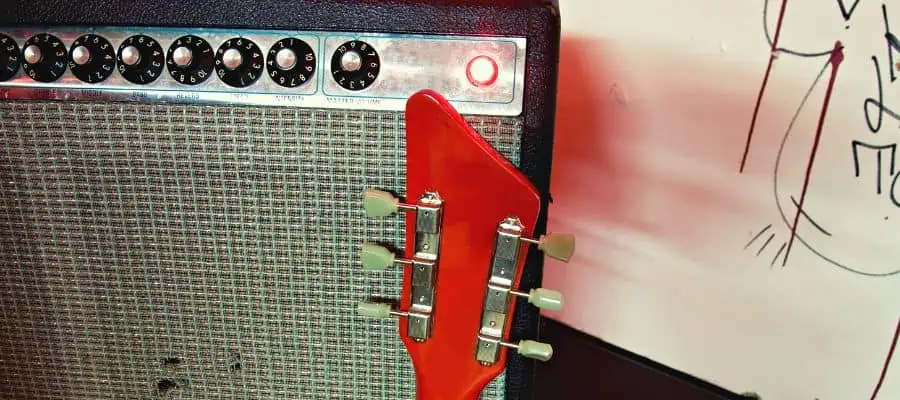
When it comes to using an amplifier with your electric guitar, there are a few potential risks that you should be aware of to avoid any damage to your guitar or yourself.
- Electrocution: One of the most serious risks associated with using a guitar amp is the risk of electrocution. This can happen if you come into contact with any part of the amp that is live, or if you touch a live wire while the amp is plugged in. To avoid this risk, it is important to always unplug your amp before making any adjustments or repairs.
- Short Circuit: An amp can experience a short circuit if it’s not properly grounded, which may cause serious damage to the electric circuit of your electric guitar. The electric shock sent to your guitar can electrocute the instrument as well as the player.
Also, there are potential risks that may not affect your instrument but the amp and its speaker.
- Speaker Damage: Playing your guitar at high volumes can cause damage to the speaker in your amplifier. This can result in a distorted or muffled sound or even complete speaker failure.
- Mismatched Impedance: Using an amplifier head with a different impedance than your amp cabin (speaker) can cause damage. Make sure to match the impedance of your amp head and your cabin to avoid any potential damage.
What are the Signs of a Damaged Amp?
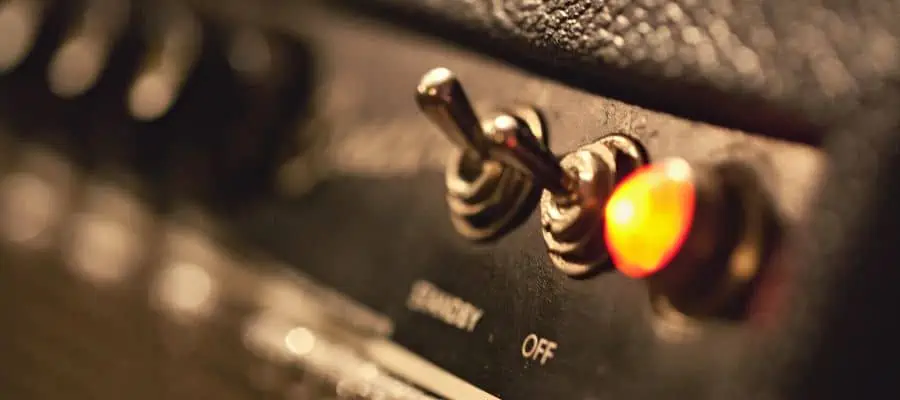
If you suspect that your guitar has been damaged by an amp, there are a few signs to look out for. The problem will be felt in the guitar pickups. Here are some of the most common indicators of damage:
- Distorted sound: If your guitar sounds distorted or muffled when it shouldn’t be, it could be a sign that something is wrong. This could be caused by a damaged amp or cable, or it could be a problem with your guitar’s pickups or wiring.
- Weak or no sound: The most common issue with a short circuit is that the guitar produces no sound at all. Check your cables and connections to make sure everything is properly connected. Sometimes there was a failure while turning it on, so you can try turning it off waiting a few seconds, and turning it back on. If there is still no or weak sound, it might be related to a short circuit issue caused by a faulty amp.
- Hum or buzz: If your guitar produces a hum or buzz when plugged into an amp and before it didn’t have that, it could be a sign of a grounding issue of the amp or the guitar or a damaged cable. Try swapping out cables or plugging into a different amp to see if the problem persists.
- Overheating: If your amp feels excessively hot to the touch, it could be a sign of a problem. Overheating can cause damage to the amp’s components, which can in turn damage your guitar. An overheated amp does not mean a damaged guitar but potential damage coming if you persist in playing. Overheating can even start a fire damaging your instrument, your surroundings, and yourself.
If you notice any of these signs of damage, it’s important to take action as soon as possible. Continuing playing through a damaged amp can cause further damage and potentially even harm you.
Preventing Amplifier-Induced Damage
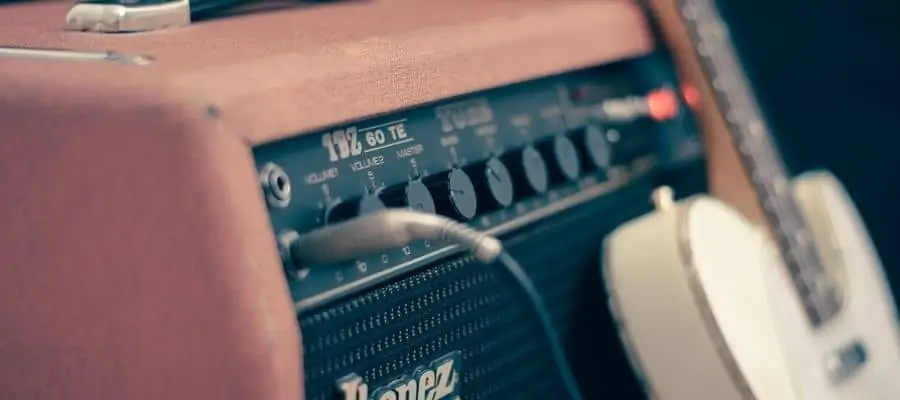
When it comes to using an electric guitar with an amplifier, it’s important to take proper care of your equipment to prevent any damage. Here are some tips to help prevent amplifier-induced damage to your guitar:
Proper Usage and Maintenance
Proper usage and maintenance are essential to prevent amplifier-induced damage to your guitar. Here are some tips to help you keep your equipment in good condition:
- Always turn off your amplifier and unplug it when not in use.
- Do not disconnect your guitar from the amp without turning off the amp or putting in standby mode.
- Keep your amplifier and guitar away from moisture and extreme temperatures.
- Use a surge protector to protect your equipment from power surges and outages.
- Use the correct cables and connectors to prevent damage to your guitar’s pickups and amplifier.
- Clean your amplifier and guitar regularly to prevent dust buildup and other debris from causing damage.
- Store your equipment in a safe and secure location to prevent accidental damage.
Repairing Short Circuited/Electrocuted Guitars
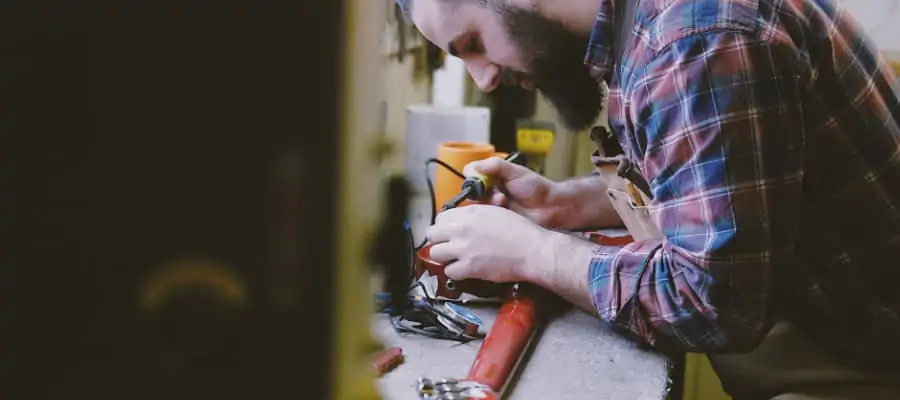
If by any chance your guitar got short-circuited or electricity passed through it while it was plugged into a malfunctioning amp, don’t worry. There are ways to repair the damage and get your guitar back to playing condition.
Professional Repair Services
If you’re not comfortable repairing your guitar yourself, you can take it to a professional repair service.
Some common repairs that might be needed include:
- Replacing damaged pickups
- Repairing or replacing damaged wiring
- Replacing damaged pots or switches
- Replacing damaged jacks or input/output sockets
- Repairing or replacing damaged bridges or tailpieces
Make sure you choose a reputable repair service with experienced technicians who have a good track record of repairing guitars.
DIY Repair Tips
If you’re comfortable doing repairs yourself, there are some things you can try to repair your guitar. Here are some tips:
- Check the wiring: If your guitar isn’t producing any sound, it’s possible that the wiring has come loose or been damaged. Check the wiring inside the guitar and look for any loose or damaged connections. If you find any, you can try to repair them yourself or take your guitar to a professional repair service.
- Replace damaged pickups: If your guitar is producing a weak or distorted sound, it’s possible that one or more of the pickups have been damaged. You can replace the pickups yourself if you’re comfortable doing so, or you can take your guitar to a professional repair service.
- Check the input/output sockets: If your guitar is producing a crackling or buzzing sound, the input or output sockets may have been damaged. Check these sockets for any damage or loose connections. If you find any, you can try to repair them yourself or take your guitar to a professional repair service.
- Replace damaged pots or switches: If your guitar’s volume or tone controls aren’t working properly, the pots or switches may have been damaged. You can replace these components yourself if you’re comfortable doing so, or you can take your guitar to a professional repair service.
Remember, if you’re not comfortable doing guitar repairs yourself, it’s always best to take your guitar to a professional repair service.
Conclusion
While amplifiers are an integral part of electric guitar setups, they can also pose risks if not properly managed. From electrocution and overheating to speaker damage and mismatched impedance, the hazards are real but largely preventable.
Being aware of these potential pitfalls and adhering to preventative measures can go a long way in protecting both you and your gear.
If you found this article useful, you may want to save this pin below to your Guitar board.
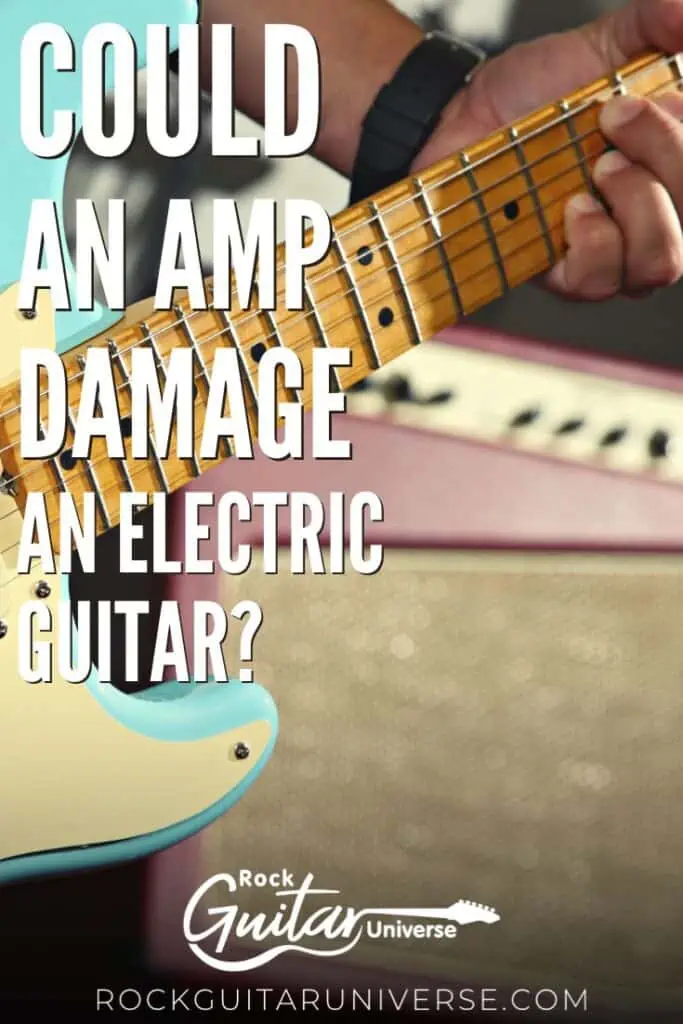
Recent Posts
When learning new songs have you noticed that some of the chord sequences sound really good? But when you tried to come up with your own chord sequence, or as we call it chord progression, you found...
Some guitarists insist on buying an expensive amplifier with their electric guitar. They assume that this is a must for every type of guitarist out there. However, in some situations, this isn’t...

